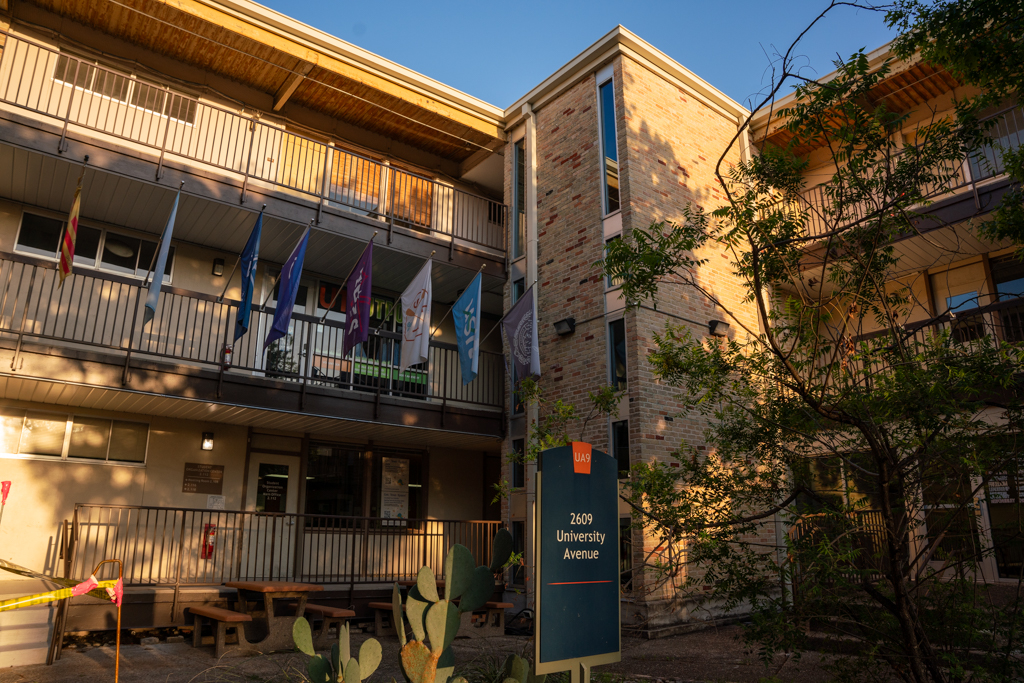At Austin Water Utility, purple is a very important color because it indicates water conservation on their water valves. With the expansion of the Austin Water Reclamation Initiative, the city is about to see a lot more purple.
The Austin-Bergstrom International Airport became the newest commercial enterprise to adopt and implement the WRI on Monday. By using reclaimed water in its irrigation system, the airport will save 25 million gallons of drinking water and save approximately $70,000 a year, said ABIA spokesman Jim Halbrook.
Reclaimed water is treated wastewater that would normally go back into the Colorado River. With this new system, it can be used for irrigation, cooling towers, manufacturing and toilet flushing.
“[The Initiative] fits into the airport’s sustainability goals,” Halbrook said. “That includes lessening our environmental impact, operating in a financially responsible way and being a good member of the community.”
Mayfield said UT is set to adopt the WRI system next fall and replace drinking water with reclaimed water in the campus cooling towers, which pull the warm air from the buildings to cool them.
Halbrook said ABIA has been working with Austin Water Utility for over a year to bring the system to the airport, and so far public response has been positive.
The Austin City Council approved the WRI in 1990 as a plan to expand development of reclaimed water into a system that will meet current and future non-potable water demands, according to the City of Austin website. The WRI provides highly treated water from the Walnut Creek and South Austin Regional plants and saves approximately 1.2 billion gallons of drinking water a year.
Austin mayor Lee Leffingwell said the city’s commitment to the reclaimed water program is just another example of Austin’s dedication to responsible management of its water resources.
“Our reclaimed water program is part of our innovative solutions to address our current water needs while ensuring Austin has water for future generations,” Leffingwell said.
Jill Mayfield, a spokeswoman for Austin Water Utility, said the ABIA system, which gets its water from the South Austin plant, cost approximately $1.3 million. She said ABIA joins Frost Bank and local development company Mueller in this initiative.
With the current drought pushing water resources to the limit, reclaimed water can take over jobs like irrigation and toilet flushing that we use drinking water for, Mayfield said.
She also said reclaimed water is currently more commercial because installing the system in a home would mean having two separate systems, one for reclaimed and one for drinking, and that the city expands the project a bit every year.
“It’s one of those things we’re taking our time with to make sure we’re doing it right,” Mayfield said. “The engineers are working with backflow systems to make sure the drinking water doesn’t ever get mixed with the reclaimed water.”
Printed on Tuesday, November 22, 2011 as: Austin to conserve funds by reclaiming, treating waste water




















